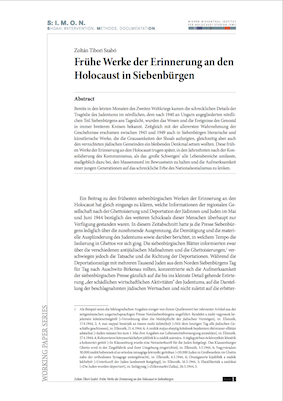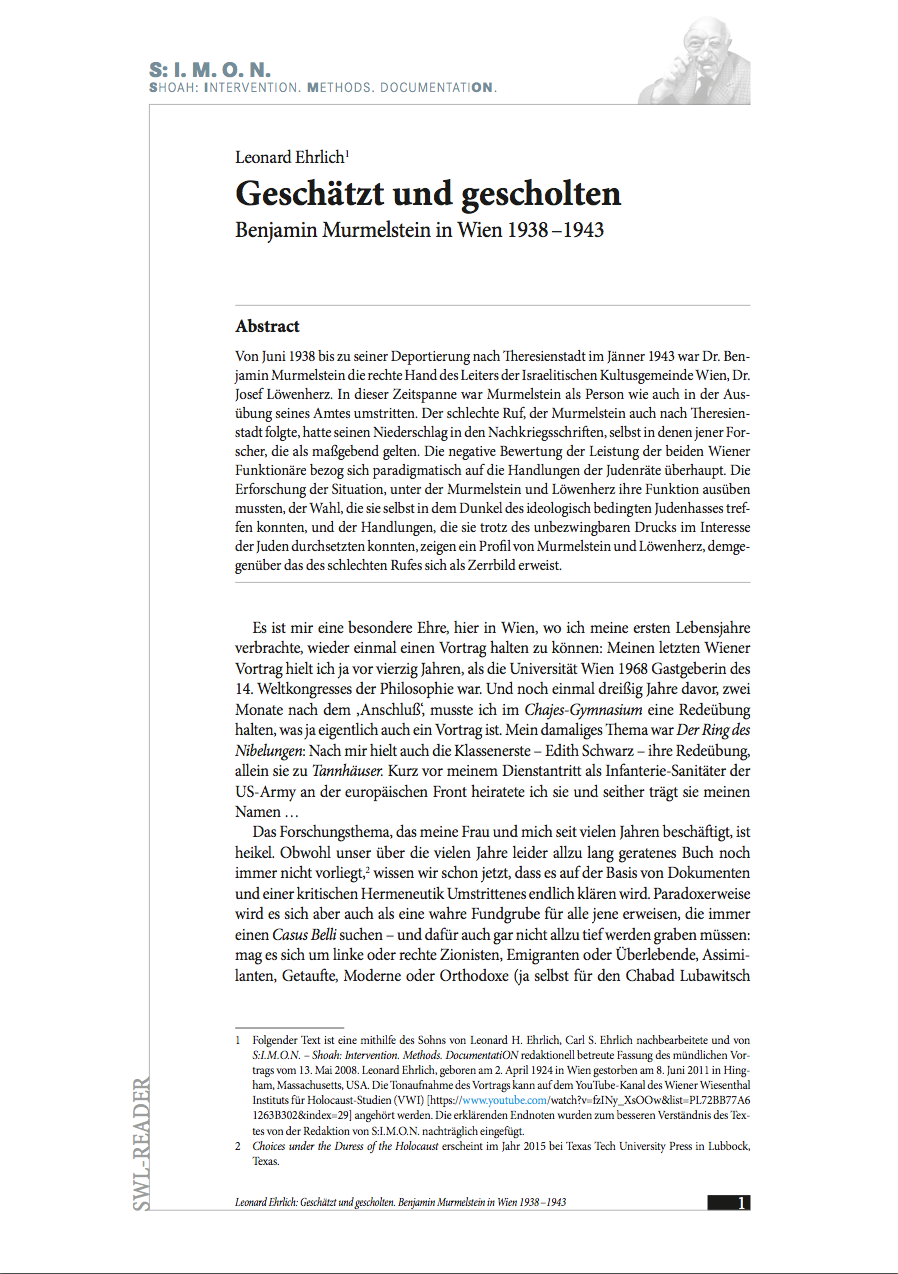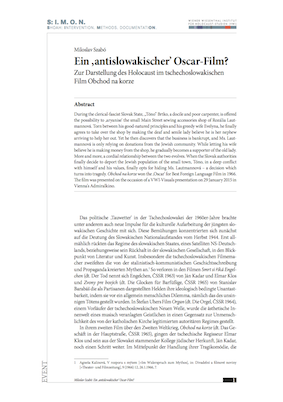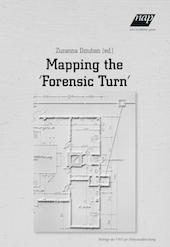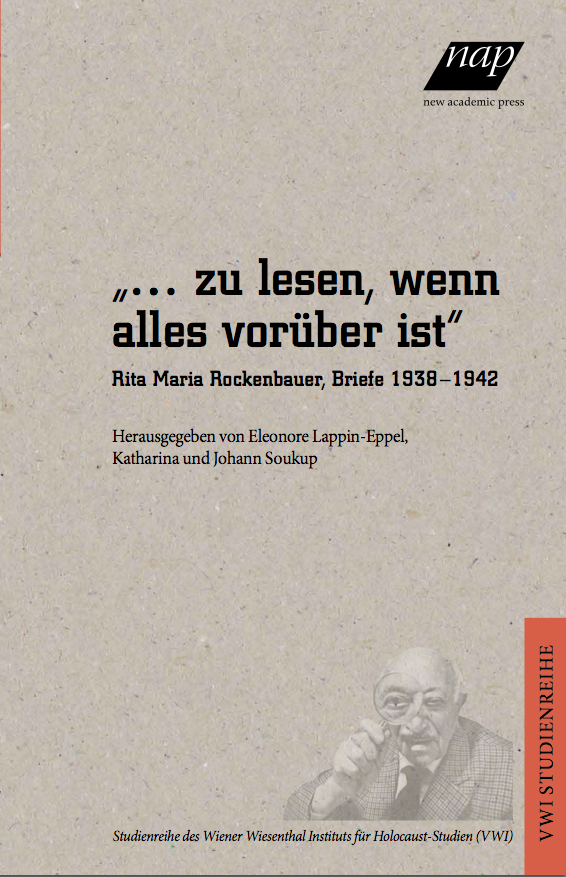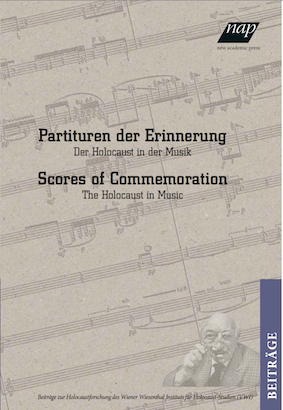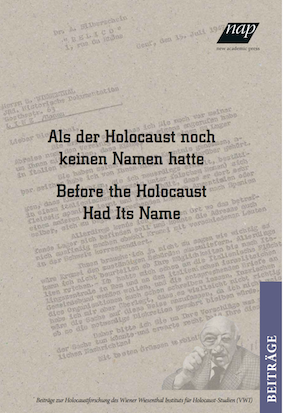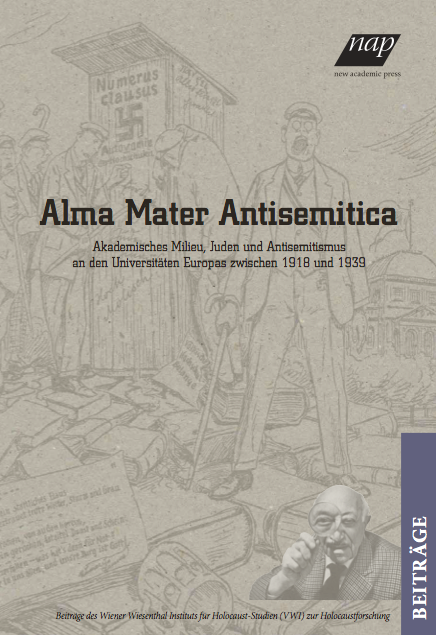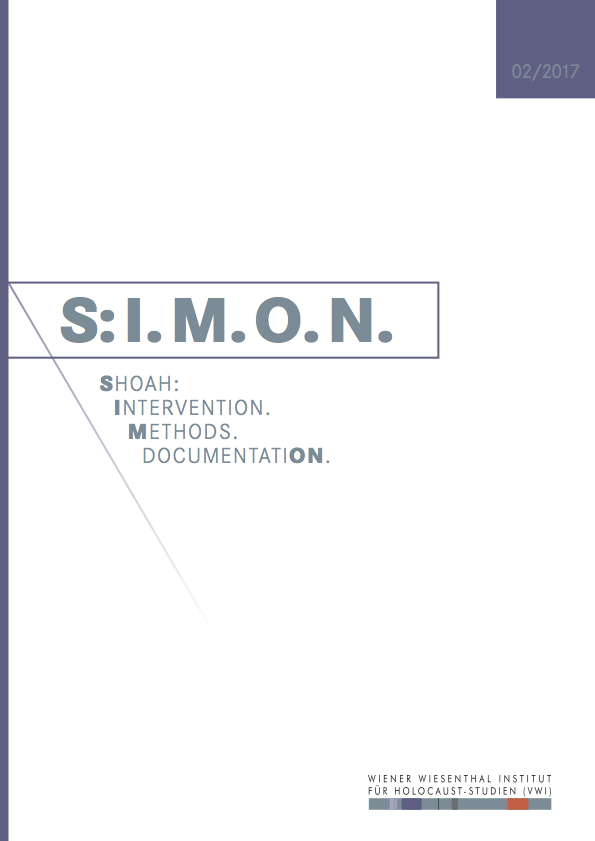 S:I.M.O.N. is an e-journal of the Vienna Wiesenthal Institute for Holocaust Studies (VWI). It appears twice a year in English and German language. S:I.M.O.N. aims at both a transnational and comparative history of the Holocaust and Jewish Studies in Central and Eastern Europe within the broader contexts of the European history of the 20th and 21st century, including its prehistory, consequences and legacies as well as the history of memory.
S:I.M.O.N. is an e-journal of the Vienna Wiesenthal Institute for Holocaust Studies (VWI). It appears twice a year in English and German language. S:I.M.O.N. aims at both a transnational and comparative history of the Holocaust and Jewish Studies in Central and Eastern Europe within the broader contexts of the European history of the 20th and 21st century, including its prehistory, consequences and legacies as well as the history of memory.
S:I.M.O.N. serves as a forum for discussion of various methodological approaches. The journal especially wishes to strengthen the exchange between researchers from different scientific communities and to integrate both the Jewish history and the history of the Holocaust into the different “national” narratives. It also lays a special emphasis on memory studies and the analysis of politics of memory. S:I.M.O.N. uses a double-blind review system, which means that both the reviewer’s and the author’s identities are concealed from each other hroughout the review process.
Shoah: The journal deals with the history of the Shoah from multidisciplinary, transnational and comparative perspectives. It seeks to integrate studies on Jews as well as on other groups of victims of the Holocaust, especially on Roma, and of so far less researched regions of (East) Central and (South) Eastern Europe.
Intervention. The journal reports on research projects and their transmission into public events. It also informs about current educational and remembrance programs.
Methods. The journal serves as a forum for the discussion of methodological approaches as, for instance, the everyday history, oral history, gender history, the history of violence, anti-Semitism and racism and the theory of memory and memory politics.
DocumentatiON. The journal contributes to critical approaches on using and interpreting archival materials in the 21st century.
Download the current issue S:I.M.O.N. 2017/2.



